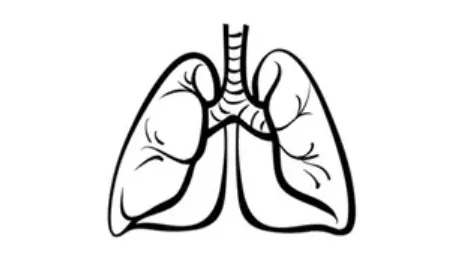
Breakthrough in EGFR+ Lung Cancer Treatment: What the Latest Trials Reveal!
2025-01-20
Author: Sarah
Breakthrough in EGFR+ Lung Cancer Treatment
In a remarkable advancement for lung cancer treatment, recent findings from the FLAURA2 and MARIPOSA trials shed new light on the effectiveness of novel drug combinations for patients with sensitizing EGFR mutations.
FLAURA2 Trial Findings
The FLAURA2 trial specifically examined the combination of osimertinib (Tagrisso) and chemotherapy in patients with non-squamous lung cancer who were newly diagnosed with locally advanced or metastatic disease. Patients involved in this phase 3 study had either an exon 19 deletion or the L858R mutation, two of the most common sensitizing mutations in EGFR-positive lung cancer. The researchers aimed to determine the primary endpoint of progression-free survival (PFS) while also assessing overall survival (OS) as a secondary endpoint.
What they discovered was impressive: the combination therapy led to a median PFS of 29 months compared with just 19.9 months for those receiving osimertinib alone, as confirmed by an independent assessment. The data appeared equally compelling when assessed by investigative review. These results indicate not only a better response in metastatic settings but also highlight the potency of fourth-generation therapies that penetrate the central nervous system with fewer side effects.
When diving deeper into subsets of patients, results were also promising for those with bone or liver metastases, even if slightly lower than the overall median. Notably, patients with brain metastases showed a fantastic hazard ratio (HR) of 0.47, reflecting significant improvement compared to those without.
Future Implications and Treatment Sequencing
But what does this all mean for future treatments? Many experts are now contemplating when it might be best to sequence therapies. While the FLAURA2 trial did not address this directly, the discussion around post-progression outcomes becomes vital, with ongoing evaluation of how patients fare after first-line therapy.
MARIPOSA Trial Insights
Compounding these encouraging findings, the MARIPOSA trial introduced a groundbreaking combination of amivantamab (Rybrevant) and lazertinib (Lazcluze), which also exhibited a promising median PFS of 23.7 months compared to 16.6 months for osimertinib. This trial reaffirmed the potential progression of treatment strategies that have historically dominated the EGFR space for the past two decades.
Patients with a history of brain metastases experienced similar positive trends, indicating the treatment's effectiveness across various subgroups. The use of an intravenous version of amivantamab in this study has sparked speculation about the upcoming subcutaneous formulation, which could offer even greater convenience and fewer adverse events for patients.
Safety and Recommendations
Despite some reporting of thromboembolism as a unique adverse effect in the combination therapy, the recommendations for prophylaxis in the initial months illustrate a safe managing approach.
Conclusion
The conclusion from these groundbreaking trials? The movement towards more effective combination therapies offers the potential to greatly enhance the prognosis for patients with EGFR+ lung cancer. As research advances, the hope is to translate these clinical findings into standard practice, refining treatment protocols and improving patient outcomes in ways we've only dreamed of.
Stay tuned as this promising landscape continues to evolve - the future of lung cancer treatment is brighter than ever!



 Brasil (PT)
Brasil (PT)
 Canada (EN)
Canada (EN)
 Chile (ES)
Chile (ES)
 Česko (CS)
Česko (CS)
 대한민국 (KO)
대한민국 (KO)
 España (ES)
España (ES)
 France (FR)
France (FR)
 Hong Kong (EN)
Hong Kong (EN)
 Italia (IT)
Italia (IT)
 日本 (JA)
日本 (JA)
 Magyarország (HU)
Magyarország (HU)
 Norge (NO)
Norge (NO)
 Polska (PL)
Polska (PL)
 Schweiz (DE)
Schweiz (DE)
 Singapore (EN)
Singapore (EN)
 Sverige (SV)
Sverige (SV)
 Suomi (FI)
Suomi (FI)
 Türkiye (TR)
Türkiye (TR)
 الإمارات العربية المتحدة (AR)
الإمارات العربية المتحدة (AR)